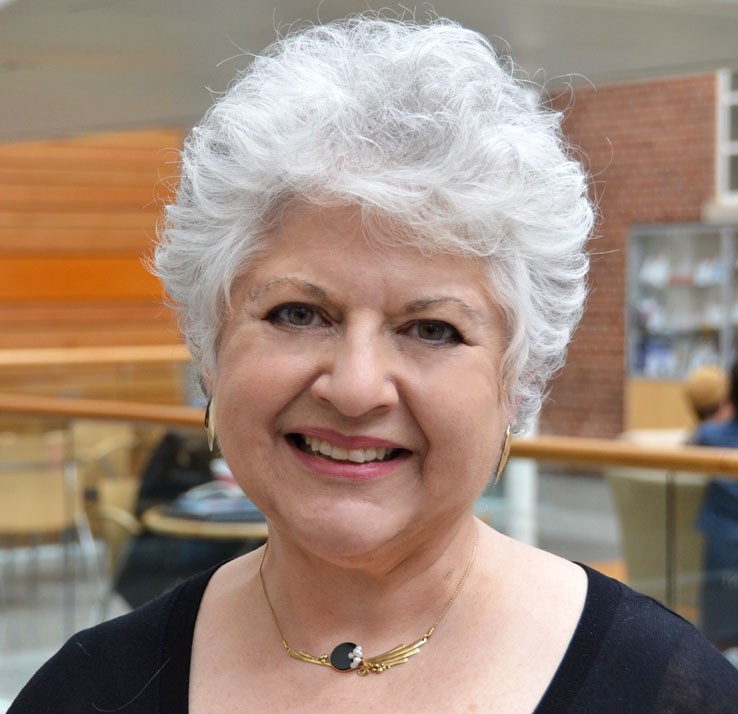Miriam H. Labbok, MD, MPH (deceased)

Miriam H. Labbok, MD, MPH (deceased)
About
Dr. Labbok's teaching, research and service since 1974 has addressed the needs of women and families to achieve optimal reproductive health, with the last 30 years centered on breastfeeding for the health of mothers and children.Her 150+ publications focus on the creation of evidence-based for sustainable improvements, primarily in birth, breastfeeding and birth-spacing practices.
Using epidemiologic, operational, translational and implementation research approaches, she developed the Lactational Amenorrhea Method of family planning and served as technical secretariat for the Innocenti Conference on breastfeeding in 1990, leading the team in development of today's breastfeeding definitions.
Dr. Labbok also studied the implementation of systems change (BFHI), served as senior advisor of Infant and Young Child Feeding at UNICEF and created a model for sustainable scale-up (ETIERS) using newer innovations related to organizational and systems sustainability. She has received many academic and professional awards.
Teaching Interests
Dr. Labbok also leads the Mary Rose Tully Training Initiative.
Representative Courses
Infant Feeding Survey Course (MCH 605) | Syllabus
Clinical Support for Breastfeeding (MHCH 765)
Research Activities
Research Activities:
Translational and operational research - taking theory to action; interface of mother and child health; breastfeeding; transdisciplinary research; CBPR; infant and young child feeding and care; birth spacing; lactational amenorrhea method; domestic and international MCH/FP evidence-based policy/service improvement
Research Interests:
Breastfeeding
Global health
Health policy
Maternal health
Minority health
Nutrition
Public health practice
Reproductive health
Women's health
Key Publications
Ten Steps to Successful Breastfeeding programme to promote early initiation and exclusive breastfeeding in DR Congo: a cluster-randomised controlled trial. Yotebieng M, Labbok M, Soeters HMH, Chalachala JL, Lapika B, Bitta BSB, Behets F. (2015). Lancet Glob Health, 3(9), e546-55.
ABM clinical protocol #13: Contraception during breastfeeding. Berens P, Labbok M. (2015). Breastfeeding Medicine, 10(1), 3-12.
Chapter 11: Postpartum sexuality and the Lactational Amenorrhea Method for contraception. Labbok MH (2015). Clin Obstet Gynecol, Oct(9), Epub ahead of print.
The Global Village: Do women live there? A critical look at global approaches to breastfeeding promotion, protection and support. Labbok M (2015). Breastfeeding - it takes a village. Praeclarus Press.
Effect of primary care intervention on breastfeeding duration and intensity. Bonuck K, Stuebe A, Barnett J, Labbok M, Fletcher J, Bernstein P. (2014). Am J Public Health, 104(Suppl 1), S119-27.
Exploration of guilt among mothers who do not breastfeed: the physician's role. M Labbok (2008). Journal of human lactation : official journal of International Lactation Consultant Association, 24(1), 80-4.
Epidemiology of basal-like breast cancer. et al., Jeannette Bensen, Lisa Carey, Kathleen Conway, H. Earp, Joseph Geradts, Susan Jackson, Miriam Labbok, Chad Livasy, Robert Millikan, Patricia Moorman, Beth Newman, Sarah Nyante, Charles Perou, Lisa Smith, Chiu-Kit Tse (2008). Breast Cancer Research and Treatment, 109(1), 123-139.
Breastfeeding: a woman's reproductive right. M Labbok (2006). International journal of gynaecology and obstetrics: the official organ of the International Federation of Gynaecology and Obstetrics, 94(3), 277-86.
Staff/Administrative Duties
Director, Carolina Global Breastfeeding Institute:
The Carolina Global Breastfeeding Institute (CGBI) was established January 2006 and exists to further local, statewide, national, international and global understanding and support for the mother/child dyad as key to the achievement of two inseparable goals: optimal infant and young child feeding and reproductive health.
Education
- Preventive Medicine Resident, Postdoctoral NIH Research Service Award in Epidemiology, The Johns Hopkins USHPH, 1981
- Postgraduate Training, Pediatrics Level I, Georgetown University Hospitals, 1976
- MPH, Public Health, Tulane School of Public Health and Tropical Medicine, 1975
- MD, Medicine, Tulane Medical School, 1975
- MMS, Medical Science, Rutgers Medical School, 1973
- BA (General Honors Graduate), Human Ecology / Biology, University of Pennsylvania
